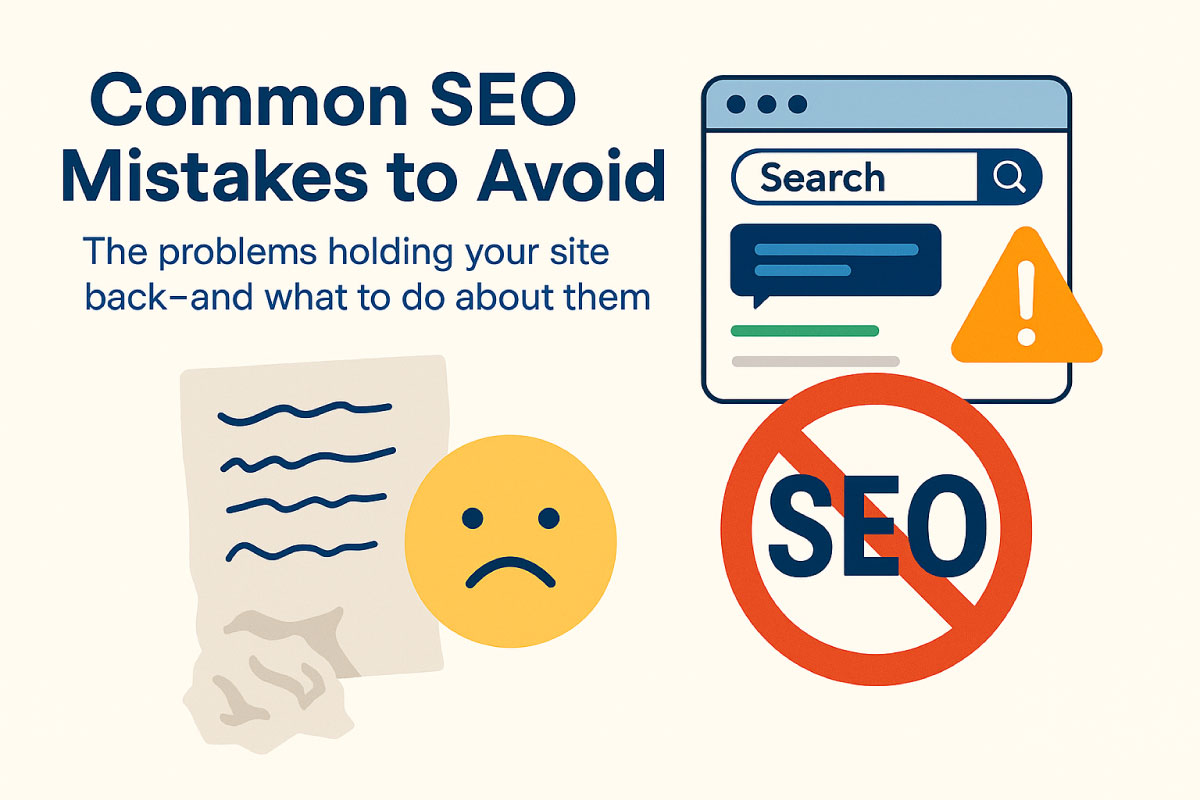
Mastering Keyword Research for SEO: A Simple Guide for Small Businesses

Mastering Keyword Research for SEO
How to find the words your customers are already searching for
Keyword research is the foundation of effective SEO.
If you skip it, you're guessing. If you master it, you start showing up for the exact things your ideal customer is typing into Google.
This guide breaks down keyword research in simple steps—no jargon, no overwhelm. Whether you're a solo founder or local service provider, this is how you stop blending in and start getting clicks.
Why Keyword Research Matters
You can have the best-designed site in your space—but if it’s targeting the wrong phrases, it won’t rank or convert.
Keyword research helps you:
- Attract the right traffic by matching what people are already searching for
- Create content with intent instead of just filling your blog with random posts
- Outrank competitors by targeting gaps they’ve missed
TL;DR: You’re not just looking for any keyword. You want the right keyword.

Types of Keywords to Know
Understanding the intent behind keywords is just as important as the words themselves.
Informational
Users are researching, learning, or exploring ideas.
Example: "how to build a brand identity"
Good for blog posts and educational content
See our guide on Understanding SEO Fundamentals
Local / Navigational
Users are looking for a business or service in a specific place.
Example: "branding agency st pete"
Crucial for service businesses
Read our post on Local SEO for St. Pete Businesses
Transactional / Commercial
Users are comparison-shopping or ready to buy.
Example: "best CMS for small business" or "WordPress vs Webflow"
These are the bottom-funnel terms that bring in sales
Explore our CMS selection guide

Step-by-Step: How to Do Keyword Research
1. Start With Seed Topics
Ask: What services do I offer? What questions do my customers ask me all the time?
Write down 5–10 core topics. For example:
- Web design for small businesses
- SEO tips
- Logo design
- Site speed
- Google ranking problems
2. Use Tools to Expand Ideas
Use tools like:
Look for terms with a mix of:
- Search volume: Are people looking for it?
- Low competition: Can you realistically rank for it?
- Intent alignment: Is this the type of traffic you want?
3. Cluster and Organize
Group your keywords into topics, not just individual phrases.
Example Cluster:
Brand Strategy
- what is brand positioning
- how to write a brand message
- brand strategy vs marketing strategy
- brand story examples
Explore our guide to building a brand strategy
4. Build Content Around Them
Once you have your keyword clusters, turn them into blog post titles, FAQs, or landing pages.
Focus on one primary keyword per page—and use variations throughout the copy.
Learn how to optimize your blog content for SEO

Pro Tips to Level Up
Look at what your competitors rank for using tools like Ahrefs or SEMrush
Use Google’s People Also Ask section to inspire subtopics
Track what keywords are already bringing you traffic with Google Search Console
Final Thoughts
Keyword research isn’t just an SEO task—it’s a business strategy.
It helps you speak the language your audience already uses and show up exactly when they need you.
Start with the right words, and everything else becomes easier: ranking, traffic, trust, and leads.
Next: Build Out Your SEO Game Plan
Now that you’ve got the words, it’s time to put them to work:
Or—
👉 Book a free discovery call and we’ll do the research, planning, and execution for you.
Blazon Studio – Look Good. Rank Better.

.svg)



